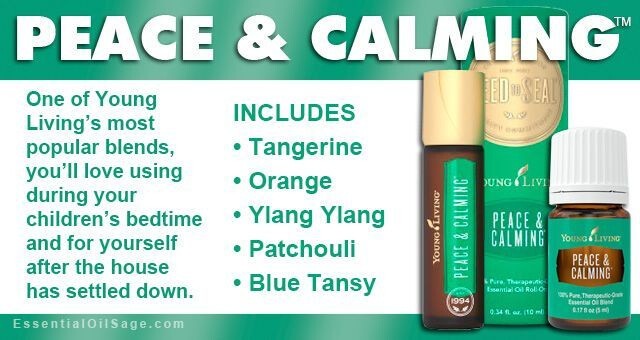Embarking on the journey of buying a house is a thrilling milestone, yet it's riddled with stressors that test patience and resilience. From navigating the complex mortgage approval process to enduring the emotional highs and lows of house hunting, the adventure is fraught with challenges. But as you brave negotiations, paperwork, and unpredictable market trends, imagine easing the tension with the soothing relief of Young Living Essential Oils. Picture yourself unwinding with calming scents after a long day of decisions or energizing your mornings with invigorating aromas. Although the path to homeownership is demanding, the fulfillment of stepping into your very own space makes it all worth it. Discover how to navigate this life-changing event with a little less stress and a lot more peace.
Read more...Are you caught in the seemingly endless cycle of waiting and wondering if your prayers are being heard? Discover the profound beauty and strength found in patience, a virtue that transforms idle time into a divine opportunity for growth and trust. By embracing the waiting period with faith, you allow God to prepare your path in ways unseen, shaping you for blessings beyond your current understanding. Explore how surrendering control and trusting in a higher plan can uplift you, turning moments of uncertainty into a testament of unwavering hope and renewed strength. Dive into the journey from frustration to fulfillment, and find solace in the promise that your waiting is never in vain, but rather an integral part of a divine design.
Navigating the uncertainty of waiting can feel like an endless cycle of hope and frustration, yet it holds a transformative power that's often overlooked. This post delves into the art of patience and trust, encouraging us to surrender our timelines and embrace divine timing. Drawing wisdom from scriptures like Romans 8:25 and Isaiah 40:31, it reassures us that waiting is not merely idle time but a sacred process where unseen blessings are meticulously prepared. As you release the need for control, discover how to find solace in the present and assurance that your season of waiting is crafting a future beyond your imagination. Dive into the full post to uncover profound insights into why the wait is intricately woven into a bigger plan, promising unexpected doors opening at the perfect moment.
Read more...Discover a natural approach to migraine relief with the soothing power of essential oils. By applying frankincense, copaiba, and peppermint oils to the roof of the mouth, you may experience faster relief from the throbbing pain, sensitivity, and nausea associated with migraines. Each oil brings unique benefits, from frankincense's calming and anti-inflammatory properties to peppermint's cooling sensation that enhances circulation. This intriguing method leverages the rapid absorption through the mucous membranes for potentially quicker results. Explore how these therapeutic-grade oils could be a valuable addition to your migraine management toolkit and find relief that might just be a drop away.
Read more...
Navigating the festive season after a gastric bypass can be a tricky affair, as holiday tables are lined with tempting delights that aren't always friendly to your new dietary needs. This blog post unveils essential strategies to enjoy the celebrations while sticking to your healthy regimen, ensuring that you don't compromise your progress. From employing clever portion control techniques and staying hydrated, to pre-planning your meals and staying resilient against peer pressure, these insightful tips are designed to help you indulge mindfully without the risk of complications. Dive in to discover how you can celebrate with joy and commitment to your health during the holidays. This guidance not only promises a fulfilling festive experience but also safeguards your journey toward a healthier you.
Read more...Borderline Personality Disorder (BPD) is a mental health condition that is characterized by intense and unstable emotions, extreme mood swings, and impulsive behaviors. It affects nearly 1 in every 100 adults in the United States (including my partner) and can significantly impair one's quality of life. While traditional treatment methods such as therapy and medication can be effective, there are other complementary therapies such as aromatherapy that can also offer relief. In this blog post, I’ll be discussing the benefits of aromatherapy for patients with BPD.
Aromatherapy can help reduce anxiety and stress
One of the hallmark symptoms of BPD is intense anxiety and stress. Aromatherapy can be incredibly beneficial in reducing these symptoms by calming the mind and promoting relaxation. Essential oils such as lavender, chamomile, and ylang-ylang are known for their calming effects and can be diffused or used in topical applications like massage oils to promote relaxation.
Aromatherapy can improve mood stability
One of the biggest struggles for BPD patients is their mood instability. Aromatherapy can help with this by improving overall mood stability and creating a sense of balance. Essential oils like peppermint and lemon are known to have mood-boosting effects and can be diffused or used in baths or shower gels.
Aromatherapy can help reduce insomnia
Another common issue for BPD patients is insomnia or difficulty sleeping. Aromatherapy can be incredibly effective in promoting sleep by creating a calming environment. Essential oils like lavender or bergamot can be diffused or added to bathwater or massage oils to create a relaxing atmosphere that encourages healthy sleep patterns.
Aromatherapy can promote mindfulness
Another aspect of BPD that can be difficult is being present in the moment or practicing mindfulness. Aromatherapy can be used as a tool to help promote mindfulness by using scents to ground oneself in the present moment. Essential oils like frankincense or sandalwood can be diffused or used in meditation practices to help facilitate mindfulness.
Aromatherapy can enhance self-care practices
Finally, aromatherapy can be a great addition to self-care practices for those with BPD. Taking a few moments to diffuse an essential oil or run a bath with added essential oils can be a great way to prioritize self-care and relaxation. This can be especially helpful in times of crisis or high stress.
In conclusion, aromatherapy can be a powerful tool in managing some of the symptoms associated with BPD. By promoting relaxation, stability, and mindfulness, essential oils can help improve overall quality of life for those with BPD. As with any therapy, it's important to find what works best for you personally, but integrating aromatherapy into your self-care routine is certainly worth considering. It has been working well for my partner.




